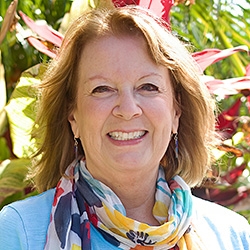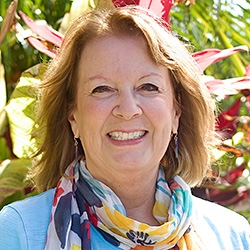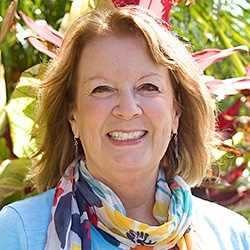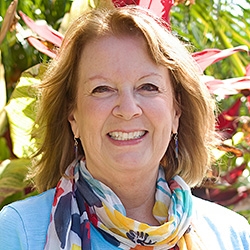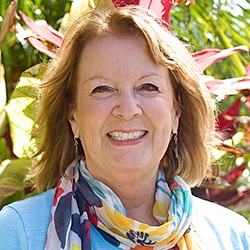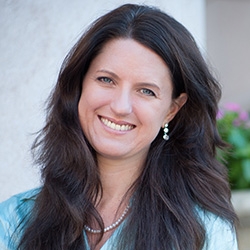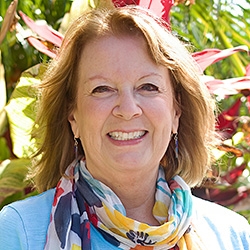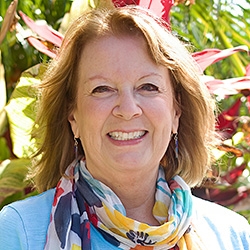

Search Results: work
-
We all love to contribute to others’ lives. We love to offer support because it meets our own needs for contribution, love, caring, and making a difference. For today, admit that you love to support other people, and that you would like support yourself. Let at least one person contribute to your life today. Read on for a related story.
-
Trainer Tip: We have a better chance of getting our needs met if we prioritize connecting with one another's needs more than being right. This way we can reduce the chances of conflict arising. We also increase the possibility we can find ways everyone’s needs can be met.
-
- Learn concrete tools for engaging with others as you embrace individual and collective liberation
- Find your own source of choice even in the face of challenges
- Release the constriction of scarcity
- Find an empowered option to respond to what is happening in our world
- Open the door to the possibility of thriving rather than merely surviving
-
Trainer Tip: Thinking someone is bad, wrong, or evil can make it more difficult to connect with them. If we focus on this kind of thinking, we stay in the problem or conflict. The minute we step out of judgement and listen for the needs underlying their actions, we begin working for the solution. Put your focus in the direction of the result you want. Read on for an example.
-
Trainer Tip: You may find yourself assessing the relationship with someone just based on how they feel. Check in with yourself: How do you feel and what needs of yours are met when you spend time with someone? Consider whether this relationship is working for you. If it isn't, be specific about which of your needs are unmet. Notice if you can do anything to help meet them.
-
There are many polarizing issues we can resist and fight over. The word "resistance" can mean fighting against what we don’t agree with in counterproductive ways. It can also be the illusion and futility of mentally fighting against reality of 'what is'. But acceptance, non-resistance, of what is doesn’t mean powerless resignation. Another way to resist is to accept and love whole-heartedly, with empathy and care for the people doing the things we are resisting.
-
Trainer Tip: Ask someone what they enjoy about you being in their life. For example, “Would you tell me 3 specific reasons you enjoy having me in your life?” To a vague reply like, “Oh, you know I love you. I just like spending time with you.” Or, “You’re one of my best employees!” ask for more specificity (eg. “Can you tell me what I do and what needs it meets that makes me one of your best employees?”). This may reveal more to both of you.
-
How does change take place? In this brief segment, Miki explores the three key ingredients that make change possible for individuals as well as for societal change.
-
- Explore what makes the capacity lens radical and practical
- Understand the complexities of how capacity and willingness interface
- Mourn capacity limits within and around us without jumping to conclusions
- Orient to agreements as behavioral anchoring in support of your commitments
-
Mourning is not just a process that happens after someone dies: it's an experience we go through with loss of any kind. Here, Shantigarbha offers us seven tips for working with mourning and healing.
-
How DO we live our lives? What is an effective response to what is happening in the world? Listen in as Miki dialogs with a participant asking, "What is mine to do?", and honors the dissonance we feel when we are working to change.
-
Whether privileged or not, its not easy to see the humanity of others in different social locations, especially if their actions have unwanted impacts and have left behind our humanity. Aiming for “both sides hearing each other” empathically, and to focus on effect rather than intent when we have more privilege, may theoretically lead to liberation. Yet, in practice it can reinforce rather than transcend power differences -- unless there's specific ways to focus attention and choice. Here, its important to transform expectations into working with willingness, and within our own terms and timetable.
-
Yvette Erasmus suggests that making peace with our feelings reduces suffering. Sometimes we want to hurry through our feelings and just feel better.
-
How DO we live our lives? What is an effective response to what is happening in the world? Listen in as Miki dialogs with a participant asking, "What is mine to do?", and honors the dissonance we feel when working to change.
-
The way we talk to one another, and think about or react to our lives, may seem "normal" but eventually, this may reach a point where we realize something isn't working, and we make adjustments. But often the suffering continues if we aren't addressing root causes. In studying NVC we can become more aware of what we are doing and its effects -- plus imagine and implement alternatives that lead to greater fulfillment for self and others.
-
With a world in crisis, steeped in incomprehensible violence, how do we then live? What, if anything, could turn this around? If we're all dying, let us die loving everyone, including ourselves and our former enemies. Let us come together behind wanting everyone to be free. Let us align means with ends as we envision a world that, against all odds, moves towards working for all of life. Let us dedicate our lives to service, to courage, to speaking truth, and to love.
-
To learn to identify and speak from your needs requires specific tasks and practices. Here's a list of 10 learning tasks and practices for you to choose from. Some of these ideas include using needs cards and lists, working backwards from strategies and ideal scenarios, reflecting on past experiences and relationships, and asking for/offering/exchanging empathy.
-
Trainer Tip: Do you ever feel certain that other people see things the way you do, only to find out they don’t? Read on.
-
Asking for help is difficult for many of us, but can yield rich rewards.
-
Trainer Tip: Our particular needs and expectations in the moment, influences how we feel. So if you are feeling hurt, sad, angry, or disappointed, try to consider what your unmet needs are, and see if there are other ways you can get them met. Today, track how your needs affect your feelings.

Quick Links
Subscription Preferences
Stay In Touch!
Looking for ways to keep up with NVC Academy news, get special offers, free resources, or words of inspiration? Here are five ways to stay engaged:

